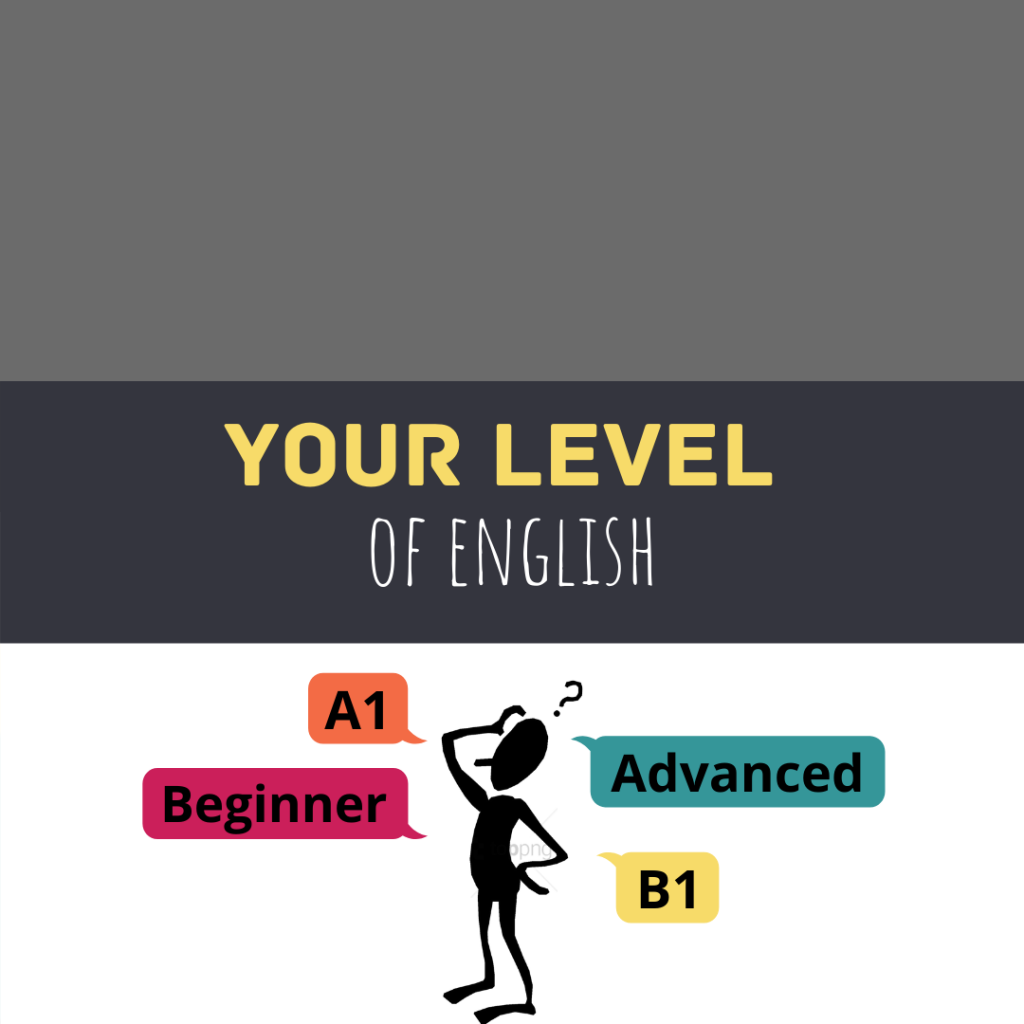
When you’re learning English on your own, it’s normal to feel a bit lost. You’re studying and practicing, but sometimes it’s hard to know how good you are. Questions might pop up like, “Can I talk about everyday things? Can I understand simple conversations?”
Knowing your level helps you understand what you’re good at and what you need to work on. It’s like having a map to guide you on your journey of learning English. And if you’re learning English for work, people might ask, “How well do you speak English?” So, it’s useful to have an idea of your level. Levels aren’t just about being a beginner, intermediate, or advanced. They’re about what you can do with English. Can you have a basic conversation? Can you understand simple texts?
To help with this, there’s something called the Common European Framework of Reference for Languages (CEFR). It splits learners into six levels. Let’s take a look at them:
A1 (Beginner): You can understand and use simple everyday phrases and expressions.
A2 (Elementary): You can understand sentences and frequently used expressions related to areas of most immediate relevance.
B1 (Intermediate): You can understand the main points of clear standard input on familiar matters regularly encountered in work, school, leisure, etc.
B2 (Upper-Intermediate): You can understand the main ideas of complex text on both concrete and abstract topics.
C1 (Advanced): You can understand a wide range of demanding, longer texts, and express yourself fluently and spontaneously.
C2 (Proficient): You have a near-native command of the language, understanding almost everything heard or read.
Knowing your level helps you set goals and see how far you’ve come in your English journey. It’s a way to measure your progress and feel more confident in using English in different situations.
Test your level of English with the FREE online tests
Cambridge Assessment English has a range of free online tests that can help you assess your listening, speaking, writing, and reading abilities.
These tests use the Linguaskill platform, which is a flexible and efficient way to test language proficiency. These tests are free to take and provide an estimate of your English language level on the Common European Framework of Reference (CEFR). The results can help you identify areas of weakness and determine the level of English courses that you need to take to improve your language skills.
Listening and Reading test
This test assesses your listening comprehension skills by playing audio recordings of conversations and lectures. It includes multiple-choice and fill-in-the-blank questions. Also, assesses your reading comprehension skills by presenting you with a range of texts and asking you to answer multiple-choice questions. It takes approximately 40 minutes to complete.
Speaking test
This test assesses your speaking skills by presenting you with a range of topics and asking you to record your responses. It takes approximately 15 minutes to complete and you’ll need to have some headphones and microphone to complete this test.
Writing test
This test assesses your writing skills by presenting you with a range of prompts and asking you to write essays, letters, and reports. It takes approximately 45 minutes to complete.



